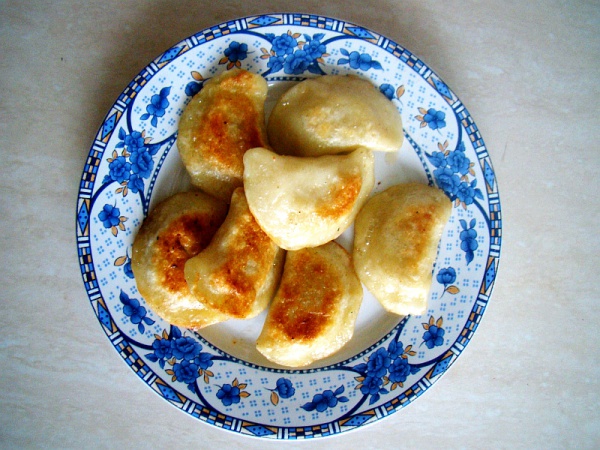Facts About Pierogi
Pierogi, also known as varenyky, are delectable filled dumplings originating from Central and Eastern Europe. These culinary delights are crafted from unleavened dough encasing a variety of savory or sweet fillings. They can be enjoyed either boiled or pan-fried, showcasing their versatility. Pierogi are beloved not only in their regions of origin but also among Ashkenazi Jewish, Ukrainian Mennonite, and American cuisines.
The range of pierogi fillings is impressively varied. Popular choices include creamy mashed potatoes, tangy sauerkraut, flavorful ground meat, rich cheeses, earthy mushrooms, and succulent fruits. Common toppings are melted butter, tangy sour cream, crispy fried onions, savory pork rind, or a luscious cream sauce.
The term "pierogi" is derived from Polish, while "varenyky" stems from Ukrainian. The exact origins of pierogi are somewhat enigmatic, with various legends attributing their creation to different regions or historical figures. Regardless, pierogi are a staple in Polish, Ukrainian, and Slovak kitchens, among others.
In Poland, pierogi are a national treasure, with "pierogi ruskie" being particularly favored. Ukrainians also cherish varenyky, enjoying them with a multitude of fillings and toppings. In Slovakia, you will find bryndzové pirohy, a traditional dish filled with bryndza cheese and mashed potatoes.
Pierogi have also made a significant impact in the United States and Canada, particularly in areas with substantial Central and Eastern European immigrant communities. They are a common sight in restaurants, supermarkets, and cultural festivals. North American pierogi come in various flavors and preparations, catering to diverse tastes.
For those pressed for time, lazy pierogi and lazy varenyky offer quick alternatives. These are prepared with a cheese-based dough that is swiftly boiled and served with sour cream or butter, providing a speedy yet satisfying meal.
Pierogi occupy a special place in many cultures, to the extent that there are monuments dedicated to them in countries such as Ukraine and Canada. They have even featured in literature and sporting events, like the Great Pittsburgh Pierogi Race.

 Belarus
Belarus